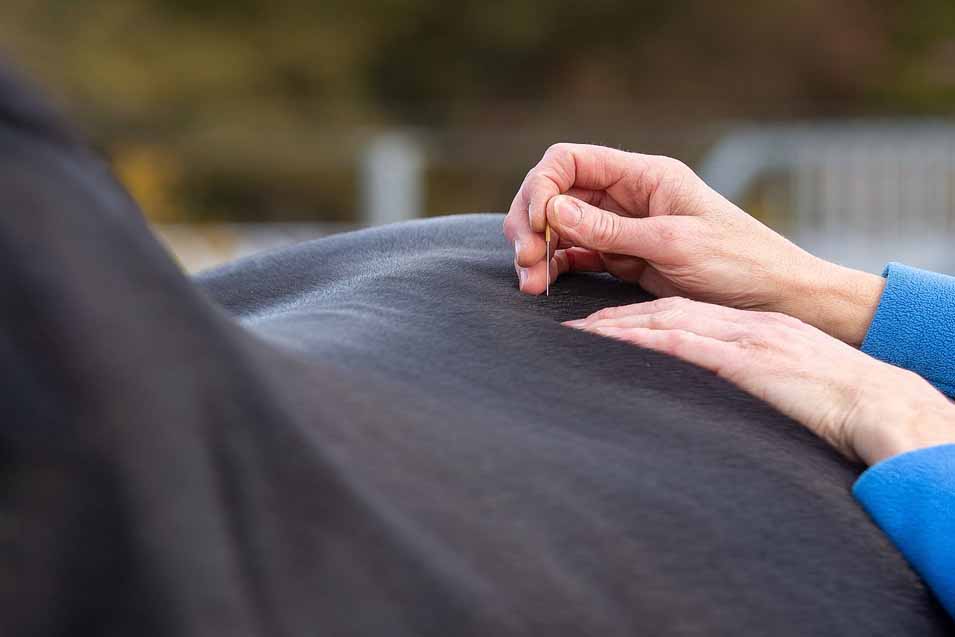
Pet owners, especially horse owners, are always on the lookout for the newest trends in equine care. They desire only the best and will take a chance on anything that can help make their horses feel better after an illness or injury.
Besides the usual medications and therapies, horse owners are now looking into the potential benefits provided by alternative therapies. Also known as complementary therapies, these treatment methods can help improve your horse’s health and performance. These types of therapies work best when used in combination and as a part of a broader, vet-prescribed treatment plan.
Alternative Therapies For Horses
Alternative therapies generally feature less invasive methods of treating a range of horse ailments. They are derived from alternative treatments used on humans and can help alleviate pain, reduce inflammation, eliminate stress, and help remedy a host of other issues.
These either use a device or employ a specific technique to help address injury or illness. The list below ranges from non-invasive to less invasive forms of alternative treatments for horses.
- Equine Light Therapy
Equine light therapy is one of the latest forms of alternative therapies for horses. The therapy uses specific light wavelengths, such as red or blue light. A handheld device shines the light on the affected area, which can help heal wounds, ligaments, and muscles. If you’re interested, you can learn more here or ask your vet how you can avail yourself of this type of therapy for your horse.
- Massage Therapy
Massage therapy entails the use of force and touch to manipulate soft tissues. They are most helpful in horses that experience muscle pain, lameness, and restricted movement. Some studies indicate massage therapy can also help reduce your equine’s stress. Much like humans, massages can be relaxing for horses, too. It can help boost their endorphin levels, which can provide them with relief from pain and improve their well-being.
Depending on your vet’s recommendations, a massage therapist will be able to determine the type and duration of the therapy.
- Chiropractic Care
Chiropractic care for horses may help address joint problems, muscle soreness, and other mobility issues. Licensed practitioners use specific movements to relieve pressure and properly position the spine, joints, and tissues. Depending on the extent of your horse’s injury or ailment, a trained chiropractor can perform several sessions to address the issue.
- Advanced Magnetic Therapy
This type of therapy relies on the power of magnetism to produce heat to reduce muscle and joint stiffness. It is particularly popular in horses with arthritis, Navicular disease, and splints. Magnetic bands are placed on a horse’s legs to help reduce inflammation and hasten injury recovery.
- Shock Wave Therapy
Shockwave therapy is another less invasive alternative therapy you can consider for your racing horse. This type of therapy uses shock or compression waves to promote the healing of injured ligaments and torn tendons. A word of caution when it comes to this type of alternative therapy. Shockwave therapy can only provide short-term relief and misuse can cause further injury.
- Herbal Supplements
Apart from muscle and joint manipulation, pet owners can also introduce herbal supplements to ensure their horses get proper nutrition. Adequate amounts of vitamins and minerals are crucial in fighting inflammation and also double as natural pain relievers. Garlic, turmeric, ginger, thyme, and paprika are some of the beneficial herbs you can add to your horse’s diet.


Benefits Of Alternative Therapies
When used in combination (chiropractic and acupuncture, massage, and magnetic therapy) and as a supplement for medications, alternative therapies can provide several health and wellness benefits for your horse. Here are some of them:
- Pain Relief: Horses who undergo alternative therapies could get relief from various ailments. Therapies can help remove muscle soreness and joint problems. They can also improve blood circulation and reduce inflammation.
- Faster Wound Healing: Alternative therapies can also promote faster wound healing and even speed up recovery. Natural supplements can provide needed nutrition for cell repair while massage therapy can reduce stress and in turn, allow for further healing.
- Better Athletic Performance: Aside from helping horses recover faster, alternative therapies can also help your horse reach their potential. Less pain and stress can help horses focus on learning new skills. And so, improved health, in turn, leads to better athletic performance.
Alternative therapies are not only applicable for injured or sick horses but can also help prevent these situations in the future. You can use them to correct minor injuries to ensure your horse remains in top condition.
Wrapping Up
In sum, alternative therapies can greatly benefit horses. They provide an added level of care that can boost recovery and ensure wellness. And today, alternative therapies are continually improving and becoming more accessible to pet owners and the entire equine community.
However, as always, it’s best to consult a vet before trying out any form of therapy to ensure that it will improve and not endanger your horse’s health.
